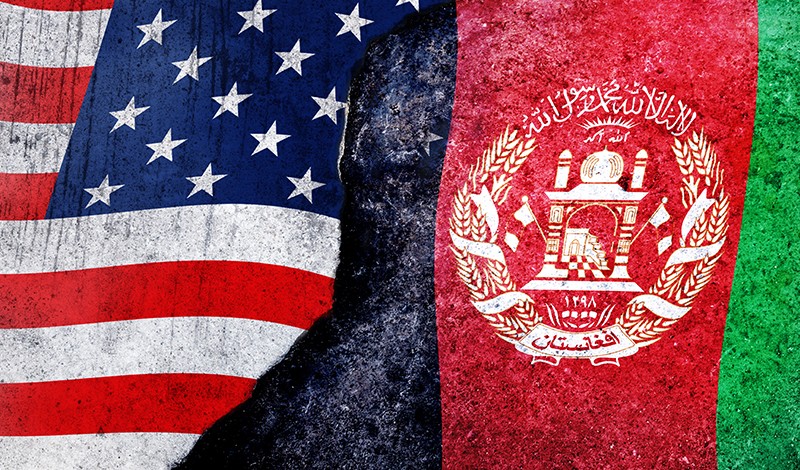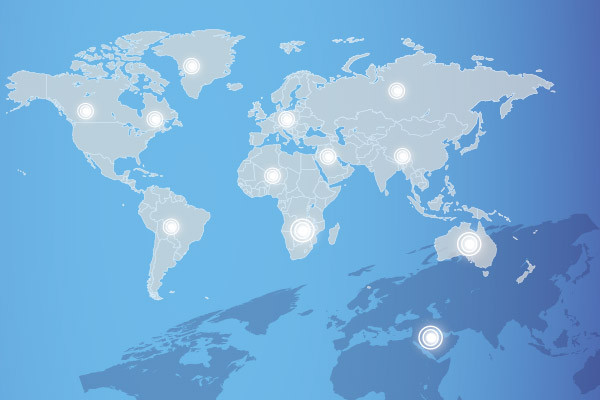Afghanistan and the Symbolic failure of American Liberalism
Even though President Biden has not considered withdrawing American troops from Afghanistan a defeat, the pictures of fleeing afghans is a stronger statement.

- by Rasha Al Joundy ,
- Sunday, 22nd August, 2021
Even though President Biden has not considered withdrawing American troops from Afghanistan a defeat, the pictures of fleeing afghans is a stronger statement. To ignore the celebratory mood from Al-Qaeda and other extremist groups is an underestimation of the threats America left for the rest of the countries in South and Central Asia and beyond. More importantly, the symbolic defeat of the nation-building agenda which President Biden denied America had in Afghanistan. But, anyone following the news and America’s decision-making process on how Afghanistan should look after the invasion in 2001 can conclude that nation-building was a part of the agenda either in Afghanistan or Iraq in 2003. This fact was acknowledged by the famous writer Francis Fukuyama. In his article after US withdrawal from Afghanistan, he wrote, “The height of American hubris was the invasion of Iraq in 2003 when it hoped to be able to remake not just Afghanistan (invaded two years before) and Iraq, but the whole of the Middle East”.
To say that nation-building was not a part of the agenda in 2001 is to say that the International Institutions- the pillar of Liberal ideology- failed in avoiding war for no good reason other than seeking revenge, a revenge afghan paid for, not just the terrorists. According to Roy Guman from the Washington Institute, “Many Afghans viewed the US engagement more like a revenge strike than a policy to stabilize the country.” To say that the US was in Afghanistan for twenty years just to defeat Al-Qaeda is an acknowledgment of how strong this terrorist organization is since it took the strongest power in the world twenty years to ensure its defeat. A defeat that is questioned by many experts who predict a fast rise of Al-Qaeda threat following the withdrawal.
After 9\11, the US could bomb Al-Qaeda for years without invading. And it would have the same outcome today if nation-building were not a goal. But it was, and the reason is simple, spreading democracy is one of the most critical aspects of Liberal ideology and the one that ensures perpetual peace in the world. The failure of this mission in Afghanistan questions the applicability of democracy in this part of the world. This rising doubt explains why China and Russia are focusing on criticizing the US as trying to impose its ideology on other nations. And this is why President Putin wouldn’t agree on a US presence in the region after its withdrawal—preserving the symbolic defeat of an ideology not just the United States of America.
President Biden did the inevitable, a step that should have been taken two decades ago with the same sad scene to follow. His failure is the failure of the whole war on terror policy, a never-ending war that seems to last for decades to come, maybe not for the US but Asian and Middle Eastern countries, for sure. Also, Europe could face a spill-over.
The lesson in Afghanistan is the same lesson Syrian Kurds learned the hard way when President Trump gave way for Turkish troops to enter Syria. And a lesson other allies like the gulf countries learned when President Obama signed the Nuclear deal giving way for Iran to increase its financial support to its backed militia in the Middle East. Or when oil facilities were attacked in Saudi Arabia, and President Trump didn’t have a response. The lesson for allies is the US doesn’t have your back anymore. Like any other country in the world, it acts upon its interests even though it is still the most powerful country.
The change; US interest used to be dreaming and pursuing a democratic world, a victory for one ideology that will end all wars and ensure justice for all. On the contrary, the picture of a baby being handed over to a soldier while afghan families trying to flee a horrific fate under the Taliban is the opposite of Liberal ideology and anything related to it.
Nobody can argue that the US should have stayed in Afghanistan forever. Still, everything president Biden has argued the last few days was a realist view, the enemy of any optimist Liberal who believes in humanity. And while President Biden was defending his decision, others were re-evaluating the new development. And concluding; the international system is mostly a reflection of a\or the most powerful state in the world. But nowadays, the international system looks less like the US and Europe, giving other world powers, mainly China, a chance to spread its model at the expense of the winning parties in WW2.
Taliban declared an Islamic state with characteristics close to Iran’s supreme leader state, and its control on Afghanistan was welcomed in Tehran that sees the Taliban as a potential friend. According to prominent American experts, the Taliban has many families and tribal ties with Al-Qaeda and other terrorist groups in Afghanistan. To say that it would cut these ties and become a normal actor is naive, and to say the US intelligence didn’t reach this conclusion after two decades of working in this country is also naïve. This approach is similar to the conclusion that says the American intelligence community was shocked with the pace at which the country collapsed into Taliban control. But realists, unlike Liberalists, needs camouflage, a mask to hide shocking facts from their constituents and the world.
What is coming next is probably a similar day for Iraq. Maybe the disaster of the withdrawal from Afghanistan would delay this outcome. After the fall in approval rating, President Biden suffered these few days. The fear that more disastrous images in Iraq would be used against the democratic candidate in the next presidential election would undoubtedly play a role in this decision. Nevertheless, this would be temporary good news for Iraqis, but not for long and surely not certain.
Declining the US’s appetite for defending its ideology worldwide and its readiness to accept the existence of a fact that says “democracy is not for all nations” means more decline in American power. And a new wave of chaotic struggle to replace its presence either morally or physically is underway.
Liberalism says national security doesn’t trump economy or civil liberty, but the equation nowadays is civil liberty doesn’t trump economy and national security. To put civil liberty in contrast to internal and financial security is the new norm. And it is becoming the victorious one after the many failures of the Arab spring, a failure country like Iran sees as a victory. Likewise, Taliban control was considered a victory to extremists. Indicative by itself of many threats to come.

Rasha Al Joundy
Research Supervisor
Read More
Areas of Expertise
- Expert in the Gulf region politics,
- Security and internal affairs and has been working on the GCC region since 2011.
Education
- Master’s degree in International Relations and World Order at Leicester University (UK 2016).
- Graduated from the Faculty of Law – University of Damascus in Syria in 2006
Bio
completed her master’s degree in International Relations and World Order at Leicester University (UK 2016). She graduated from the Faculty of Law – University of Damascus in Syria in 2006, and trained as a lawyer to register at Damascus bar association. She is an expert in the Gulf region politics, security and internal affairs and has been working on this region since 2011. Rasha Currently work as a senior researcher for Gulf affairs and supervise the training program at Dubai Pubic Policy Research Centre.

